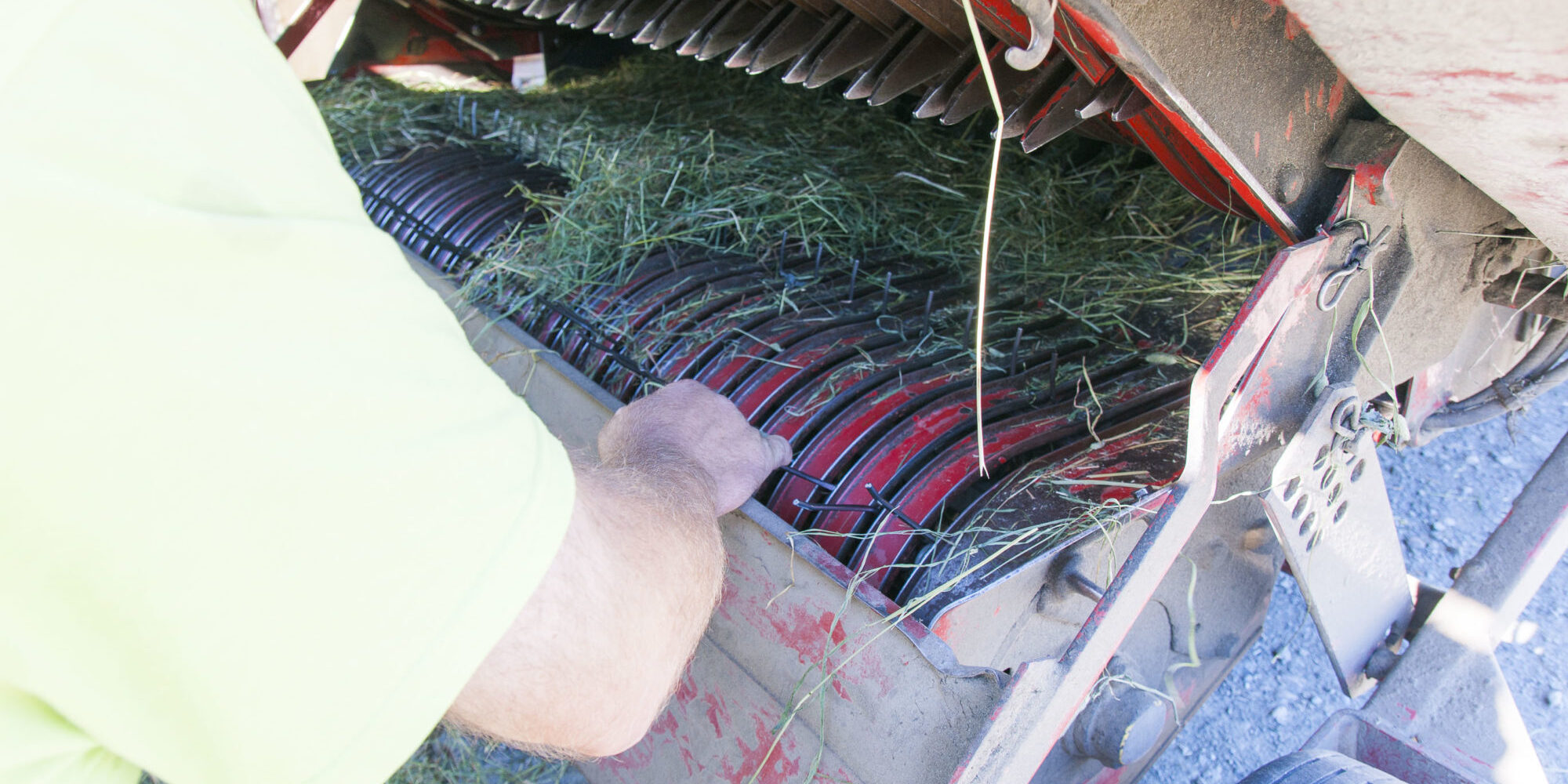
Cattle and machinery are often involved when accidents occur in agriculture
Author
Published: 20 June 2023
Last updated: 19 December 2023
Contact persons
Research areas
Share article:
The number of accidents that occur in agriculture is high compared to other industries. According to the farmers themselves, the cause is often human error.
Almost 7 out of 100 farmers have experienced accidents on the farm in the past year and 1 in 10 have experienced near miss or incident of in the same period. Accidents often occur when livestock is moved and when machines and tractors are used. This is shown by a survey on health, environment and safety (HMS) answered by just over 9,000 farmers in 2022.
In a recent report based on the survey, researchers analyzed which groups of farmers are likely to experience accidents and fires on their farms. The analysis shows that farmers without agricultural education are less likely to experience an accident compared to groups with agricultural education. This is a finding that the researchers find challenging to explain.
We must investigate this further. In any case, says Brit Logstein, head of the National Centre of expertise in Agricultural Health at the Department of Occupational Medicine, St. Olav’s Hospital, and a researcher at Ruralis, this shows that agricultural education is not a prerequisite for safe farming.

Brit Logstein Foto: Odd Roger K. Langørgen
Milk, cattle and pigs are the most dangerous
The researchers also found that farmers who produce milk, beef or raise pigs bear the greatest risk of an accident occurring. When it comes to gender, the researchers see that female farmers are more likely to be exposed to an accident than their male colleagues.
In bare numbers, around 240 farmers experience an accident each year that causes lasting physical suffering. In addition, says Logstein, a high, but unknown number of farmers endure wear and tear injuries due to high workload over time.
“I believe our findings show, among other things, that it is very important to have a review of the use of personal and adapted protective equipment in agriculture,” says Logstein. “We humans – and that includes farmers – will always make mistakes. There will always be occasions where we are inattentive. The whole idea of protective equipment is because people can and will make mistakes, and it is incredibly important to have the right protection if an accident is to happen.”
It is important to ask, stresses Logstein, how good access to protective equipment for Norwegian farmers is, and what is the degree of knowledge of its correct use.
A third lack a fire alarm
All farmers must comply with various fire protection measures. A third of the farmers answered that they did not have a fire alarm on the farm. At the same time, almost 2 out of 100 in the survey have experienced a fire or fire outbreak in the past year. The most common cause of fire is a fault in electrical system or equipment, in a vehicle or work machine, or as a result of heating with wood, oil or wood chips. The risk of fire and fire outbreaks is higher among younger farmers.
Farmers who attach great importance to safety, and who have access to good HSE advice, have fewer accidents and fires or outbreaks of fire than farmers who don’t view safety as very important – that is, those who answered that they did not have access to good advice and had little overview of HSE requirements.
Three out of four think they have good health
When asked about their subjectively perceived state of health, 75 percent answered that their health is very good or good. Elsewhere in the Norwegian society, the figure is somewhat higher.
A good number of farmers in the survey reveal that they do not prioritize visits to the doctor or other medical treatment. This may be due to a lack of replacements, or that they cannot afford to pay someone to take care of the tasks on the farm during their absence, says Aina Winsvold, an employee at the National Center for Agricultural Health, and a researcher at Ruralis.

Aina Winsvold
On a general basis, there are many farmers in the survey who write about major challenges in getting a replacement. Either because it is too expensive, or because there is no-one to ask where you live, as one farmer put it.
Actively working with HSE
Most farmers work actively to reduce the risk of accidents and fire, and to rectify infractions related to HSE. A few attaches little importance to safe and secure handling, and some do not correct HSE breaches because it costs too much.
Our findings show that those who deal with HSE violations on an ongoing basis have fewer accidents than those who, for various reasons, do not, says Logstein.
To reduce accidents and fires, the researchers primarily recommend working to improve farmers’ working conditions on the farm and basic conditions outside it. It is also important to look at how farmers can improve their own working environment and reduce the chance of making mistakes due to stress and inattention.
Cooperation on HSE mapping
Cooperation on HSE mapping
The HSE mapping has been carried out on behalf of the entire industry as a result of a collaboration between the Norwegian Food Foundation (KSL) and the Norwegian Agricultural Consultancy. The National Competence Centre for Agricultural Health at the Department of Occupational Medicine, St. Olav’s Hospital, and Ruralis have analyzed the results. The report has been written jointly between all four organizations.
According to co-author and specialist coordinator for HSE in the Norwegian Agricultural Consultancy, Halle Arnes, this report will be a guide for how the body will work with HSE in agriculture in the future. Up-to-date advice and follow-up on HSE is crucial for farmers’ life and health, he says.

Halle Arnes Foto: NLR
Over 9,000 farmers chose to answer this survey, and we are very happy about that. An important finding from the report is that most Norwegian farmers are skilled at prioritizing safety on their own farms, but there is still too much acceptance that accidents will happen. The report shows that it is important to continue investing in the HSE area in order to reduce accidents in Norwegian agriculture, says Bjørn Hvaleby, co-author and subject manager at KSL. It reinforces the importance of the work that KSL and Norwegian Agricultural Consultancy do, he concludes.

Bjørn Hvaleby
Author
Published: 20 June 2023
Last updated: 19 December 2023


